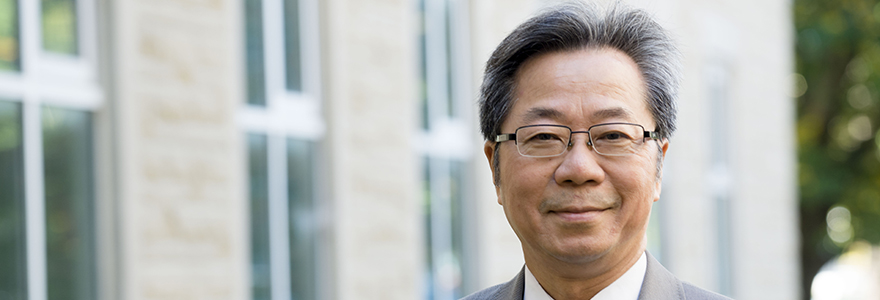How do you measure a year?

Dr. Davy Cheng has been serving as Acting Dean for Schulich Medicine & Dentistry for a little more than one year. What’s kept him busy, what’s made him proud and what are some of the more challenging projects he’s been focusing on? We sat down with him to find out.
In October, you celebrated a full year serving in the role as Acting Dean. How would you describe the past 12 months?
The words that come to mind very quickly are: rewarding, challenging and proud.
I’m very grateful to serve in the role and to have met and worked with so many faculty and staff. It’s been an exciting time of renewal at the School, and a great opportunity to bring in new leaders.
There is no question that a role like this one faces challenges. There are the day-to-day pressures and oversight mandate that any organization deals with. And then there are the larger external pressures, such as funding, which we deal with at the national and provincial level.
At the same, there are many rewarding moments and opportunities. This past year, we identified plans to ensure financial stability and our integrated medical education mandate began to take shape. We also started some new initiatives, such as Artificial Intelligence in health care and have been integrating academic support to the Ontario Health Teams with our academic teaching hospitals in London. Along the way we’ve been able to celebrate the research and education achievements of our faculty.
What are some highlights for you from the past year?
My contact with alumni definitely stands out as a highlight. It’s always so enjoyable to meet with them at events and hear more about their successes, their needs, their passions and the progress they have made in their careers. We are so proud of them and their accomplishments. The School’s alumni also continue to make a difference in enriching our education and research programs through their philanthropic support. They recognize the power of their support and they seem very willing to donate back to the School.
Going through the budgetary process was also a highlight for me. It gave me the opportunity to work closely with people from across the School and understand the complexity of the School and come to appreciate even more the important research, education and clinical care initiatives and programs at the School. Through the commitment and support of our faculty and staff, we have been able to stabilize our budget moving forward.
Alongside the budget process, people from across the School have been working to create efficiencies across our departments and programs. Teams across the School have embraced this and in the end, it will make us stronger.
I’m also pleased that we have advanced some facility renewals. Renovations have been taking place within certain buildings to create more research space, to bring department teams closer together for better collaboration and to support the construction of the new BioMedical Research Facility.
In late November, the School announced the establishment of the Office of Military Academic Medicine. Under the direction of Dr. Vivian McAlister, this Office builds upon a long-standing relationship between the School and the Canadian Armed Forces, and brings together current education, research and partnership activities. It also positions the School to work more strategically with the ongoing programs and to identify new opportunities for collaboration and expansion of current activities.
Are there any changes or new initiatives taking place in the coming months?
The School has established the Centre for Population Health, Primary Care and Public Health, which is being created as a result of the academic convergence of the School’s successful Master of Public Health Program, Family Medicine and Epidemiology and Biostatistics. We believe it will foster collaborative research and innovative education in population health regionally, nationally and globally.
I also believe the School and the Centre for Medical Evidence, Decision Integrity & Clinical Impact will continue to play a role in supporting the Ontario health team approach being taken in the province. We’ve already been involved in health services research support in collaboration with the Ministry of Health and Long-term Care Rapid-Improvement Support and Exchange. I believe the School will have a tremendous impact in health services research in our region with our academic partners on this patient care approach.








